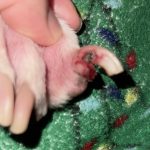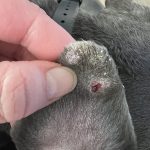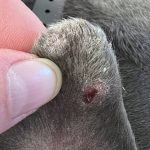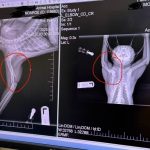Hello,
This is a common reason why I see dogs. The difficulty is that every dog is different and there isn’t a blanket recommendation for these cases.
The best place to start is with your vet. And a good foundation for preventatives. From there we talk about diet, complicating conditions and a good baseline diagnostics plan. If these don’t yield anything we try medications to see if we get a positive response to treatment.
In all it can be a slow and gradual process of ruling in or out options.
I wish I could help more. But it has to be personalized.
Best of luck.
Krista

















Hello,
There are some bladder stones that will dissolve with a prescription diet. You can ask about this to try. I also put these dogs on an antibiotic. The down side to waiting is that you will have to take another Xray later to see if there are less stones or smaller stones. You also have to stay on the diet life long. The other concern is that a stone can lodge in the base of the bladder and act as a plug and make it difficult or impossible to urinate. This becomes an emergency and this can also be very costly. You can also seek this surgery elsewhere. Another clinic might be less expensive. The stones can also be sent for free to the Minnesota uriolith lab. Ask your vet about this.